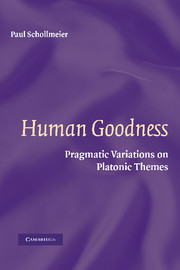1 - An Apology
Published online by Cambridge University Press: 28 July 2009
Summary
1. ΓΝΩΘΙ ΣΕΑΥΤΟΝ! Who cannot remember the very first time when he or she heard these words uttered? KNOW THYSELF! I know that I can distinctly recall when a high school chum announced to some fellow classmates and me that this pronouncement, together with the injunction NOTHING IN EXCESS, was the most famous and the most important utterance of the Delphic oracle.
Nor can I forget the quizzicality that immediately followed this revelation. NOTHING IN EXCESS surely appeared to be a reasonable, if at times a difficult, maxim to follow. But KNOW THYSELF? This great injunction rang hollow. Know thyself, when there are so many other intriguing things seemingly waiting to be discovered? Not to mention the ingenious things no doubt waiting to be invented? How could a nostrum seemingly so empty be the summation of ancient Greek wisdom?
You may imagine our consternation when this same friend kindly informed us in almost the same breath that the Greeks highly esteemed a playwright who wrote a play about a man who murdered his father and married his mother. They had even given him a prize for it, he claimed. We were apoplectic! The Greeks, we had been taught, were the very paragons of our culture. They had fought so valiantly against so many at Marathon and Salamis.
Yet what better inspiration for philosophy than these ancient paragons who appear so paradoxical! Who better to invoke for my present undertaking than these haunting spirits?
- Type
- Chapter
- Information
- Human GoodnessPragmatic Variations on Platonic Themes, pp. 1 - 31Publisher: Cambridge University PressPrint publication year: 2006



